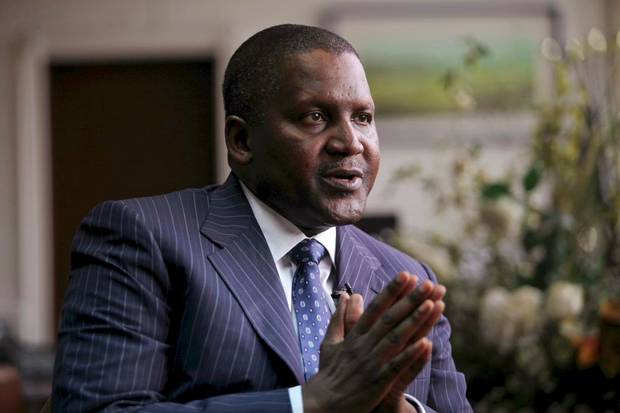
By Kenneth Nkemnacho
How do I define entrepreneurship? I wanted to look at the technical meanings as an introduction to this very valuable subject, but I said to myself, no – no, because, entrepreneurship isn’t a theoretical concept – it is what the eyes see, what the hands feel, and what the tongues taste. If you can’t behold it, embrace it, and relate to it in physicality, it is nothing but an ideology lost in the arbitrary world. For this conclusion, I made up my mind that the best definitions of entrepreneurship are the ones that emanate, not from the classroom, but from those that are one hundred percent in the game.
How does Ray Kroc, the Founder of MacDonald see entrepreneurship? He said, “If you’re not a risk taker, you should get the hell out of business.” Scott Belsky, Behance’s Co-Founder, in putting it straight said, “It’s not about ideas. It’s about making ideas happen.” Aliko Dangote, Africa’s wealthiest man advised that “To build a successful business, you must start small and dream big. In the journey of entrepreneurship, the tenacity of purpose is supreme.”
In my simplest definition, entrepreneurship is making what you love to do best your business. Please take note; entrepreneurship isn’t a hobby – it is being business-minded on your most passionate pursuits. If you know how to whistle very well, and you make a business out of it, you’re an entrepreneur. But if you just enjoy whistling without putting the talent into a well-structured pattern that can make profits, hire labors and meet needs, you’re just doing what qualifies as a hobby. Hobbies can keep you fit, help you wind off when relaxing, but besides that, you’re not a contributor to economic growth and development.
Entrepreneurship requires ideas generation, but generated ideas kept in the cooler, with nothing done about it do not amount to business. It isn’t therefore strange when Catherine Cook pointed out that “To any entrepreneur: if you want to do it, do it now. If you don’t, you’re going to regret it.”Implementation, passion and unimpeded drive are the keywords in entrepreneurship. Without the heart to dare, and the mind to steer on in spite of obvious limiting conditions and glaring contradictory undulations, you can’t attain the height where there’ll be success stories. “Never give in–never, never, never, never, in nothing great or small, large or petty, never give in except to convictions of honor and good sense. Never yield to force; never yield to the apparently overwhelming might of the enemy.” These were the words of Winston Churchill, but that is also what is imprinted in the minds of those who embrace their passions and turn them into business.
Africa has had lots of success stories in entrepreneurship, but can still have more. Entrepreneurs have made massive contributions to the growth and development of African economies, and will still make more. These recognizable contributions are encouragements to those itching to join the train heading in the direction of transcendental advancement.
In 2003, I was privileged to work for an organization in Nigeria that had interest in buying an American quick service restaurant franchise, but the company that had the license for Africa then was based in South Africa, and that company was called Steers Holdings, currently known as Famous Brands. Famous Brands, as it is now known, was founded by George Halamandres in the 1950s after visiting the United States and deciding to bring to South Africa the Steakhouse concept, according to Wikipedia. And after years of evolution and revolution, what started as a miniature idea has grown into a collection of mega brands, and has become the biggest quick service restaurant in Africa. Today, Famous Brands has a total of about twenty different brands and over two thousand outlets locally and internationally. One man’s dream, one man’s idea, one man’s desire and passion, one man’s willingness to take risks paid off. Under the payroll of Famous Brands are thousands of workers.
One major contribution of entrepreneurs to the growth and development of an economy is the provision of employment. The government has only a limited number they can hire, but entrepreneurs do more hiring. If everyone has a dream, and make that dream a reality, dwindling economies will wake up and become vigorous in upward directions. September 4, 1998, the giant technology company, Google was founded by Larry Page and Sergey Brin in a very insignificant apartment, and under twenty years, they have an employee base of over seventy-two thousand people. Globacom, one of Nigeria’s biggest telecommunication companies that was founded in 2003, as at 2009 hired over two thousand five hundred staff. Mo Ibrahim, after working for a number of telecommunication companies founded Celtel, and its human resources capacity ran into thousands. When the company was sold in 2005, he realized $3.4 billion, and today, Mo Ibrahim Foundation, a social enterprise has staff all over the world working for it. And besides that, in 2007, the Mo Ibrahim Prize for Achievement in African Leadership was initiated. It took an entrepreneur to understand that leadership is the epicentre of a driven economy.
This brings me to another main contribution of entrepreneurship towards the growth and development of an economy – it is called leadership. Resources don’t control themselves; they are controlled by leadership. Leadership provides direction, planning, goals and objectives. Without these elements, economies will die in spite of abundance. Many African nations suffer, not because of insufficiency, but due to lack of credible leadership. Even in the most advanced worlds, moving without heads or better still, moving without thinking and productive heads is driving in reverse directions, and not too long, the consequences of poor leadership will reflect in the economic indices. No doubts, entrepreneurship provides for nations, credible leaderships that steer the ships to shore and deliver the needed goods that trigger and maintain the growth and development of economies. And no wonder most heads of states rely on them when making major economic decisions and when going into bilateral and multilateral agreements because they can trust their judgments.
The growth and development of African economy must not only depend on the success of today’s entrepreneurs – it must also look at the future. No one sees the economic future like entrepreneurs, and for this, preparing for tomorrow is prototypically essential. Entrepreneurship provides the people for tomorrow – the people that will drive the future and direct it where it should go. Formally or informally, entrepreneurs mentor tomorrow’s leaders and position them where they can be successor-tools. This is what needs to be more focused on by today’s African entrepreneurs besides profit making and provision of employment. Passing the entrepreneurial baton from today’s people to tomorrow’s does not happen by wishful thinking or arbitrary assumptions – it occurs through deliberate guidance, training, preparation and vision. Michael Meade, in The Genius Myth said, “Mentoring is an archetypal activity that has timeless elements which can connect us to the universal ground where nature renews itself and culture becomes reimagined. Youth and elder meet where the pressure of the future meets the presence of the past. Old and young are opposites that secretly identify with each other; for neither fits well into the mainstream of life.” One of Africa’s social entrepreneurs and writer, Ernest Agyemang Yeboah wrote, “Let us do our best whilst we live for another tomorrow is coming when whilst we are long gone, another group of people shall come to either suffer from our worst or enjoy and build upon our best. Let us run wholeheartedly today with all alacrity for another generation shall come for the baton from our hands to either blame us or congratulate us on how we lived the dream and journeyed in life through the good and the bad times; another generation shall come to ponder over our footprints as a good or a bad lesson for them! Let us run with all necessary zeal such that when we hand over the baton, our next generation will have no reason but to soldier on with courage, enthusiasm and absolute commitment to get to the finishing line with a great accomplishment and a noble story worth pondering over and over!”
I find it counterproductive when today’s African entrepreneurs make secret their strategies of success. Anyone that does not tell the coming youth the secret of their success and teach them to do the same isn’t a true entrepreneur – because, true entrepreneurs know that success is incomplete if no one is mentored to carry on with the business. In the story of Steers Holdings (Famous Brands) I told earlier, George Halamandres mentored so many people to continue with the business, including his children. Today, what started as an unknown steak house is worth hundreds of millions of dollars. If Halamandres had taught no one about the business, no one would have carried on with his legacy, and the economic impact it has made today would have been non-existent. We must pass what we know to those behind us so that, with their ‘faster’ brains, they will reinvent it and renovate it.
It was around the first quarter of 1988; I walked into a Microbiology class in University of Benin, Nigeria. I can’t remember vividly, the name of the lecturer, but what I can recall is that he was teaching a topic on fermentation, and then, told us a story – a very true life story on how test tube palm wine was discovered in Nigeria.
On one particular day, he was in the university laboratory working on a research when the idea hit him; he realized that as a microbiologist specialized in wine making, he could synthesize the natural palm wine in vitro, and he therefore decided to give it a go. He put a few things together and left them there overnight. The next morning when he came back, everywhere smelt of palm wine. He was elated and decided to work on how to derive a replicable scientific sequence of the synthesis. For months, he worked assiduously and came up with what could be scientifically interpreted. At that point, he submitted his findings to the school. The then Vice Chancellor of the university set up a committee made of scientific researchers to look into his work, but unfortunately, they disputed him. He was upset but carried on with the research. Not too long after the quagmire, one Saturday morning, he was driving past a newspaper vendor, when he saw on one of the major newspapers a headline, “Test Tube Palm Wine Discovered.” He hurriedly parked his car, got out and bought a copy. When he read it, he noticed that it was his work that was sold to a wine producing company in Lagos, Nigeria. Out of desperation and frustration, he rushed to the Vice Chancellor’s residence to intimate him with his observation. The end of the story is that on the following convocation ceremony of the university, the school officially announced to the world how one of her own synthesized the natural palm wine in the laboratory. Today, test tube palm wine has become a huge business in West Africa raking in multi-million dollars yearly. This happened because someone with entrepreneurial mentality decided to innovate.
Another major contribution made by entrepreneurs to the growth and development of economies is creating innovation. In my simple definition, innovation means making new and fresh ideas work. The world is itching to find new products, new services, new methodologies of solving obdurate, reprobate and persistent problems and challenges. In medicine for instance, there are many diseases and disease states that require urgent attention. Finding a cure for lymphoma will save many lives. Finding an answer to air crash will help people travel more peacefully. Finding a lasting solution to poverty will make the world a happier place to live. As always with innovation, after it comes economic boom because people are willing to put their money into what solves their problems.
Solving a problem is meeting a need – entrepreneurs meet societal needs through their offerings, and the meeting of needs is part of the growth and developmental chain. The meeting of needs has a cascade effect on the drop of social menace. A society with a fall in miscreancy experiences a boost in economic growth and development, as more people become more productive. In 2013, the International Labor Organization found out as they studied the impact of labor productivity on growth that labor productivity within the economic sector is the main driver of economic growth. Bill Conerly; a professor of economics and Forbes contributor stated in one of his articles that “productivity is the most important determinant of the standard of living of a group of people, a nation or a planet.” To reiterate this point, it must be boldly noted that the meeting of needs dissuade a large percentage of weak minds from doing stupid things, and persuade them into looking for employment. Anywhere the workforce is high, economies always grow. Entrepreneurs truly meet needs.
Growth and development of economies are measured in wealth – entrepreneurs create wealth. The Entrepreneur Jeff Bezos, the owner of Amazon, this year, became the third richest man on earth with a net worth of $72.8 billion. According to Forbes, 195 newcomers made it into the list of 2017 wealthiest people in the world. Among the newcomers, China contributed 76 while the United States had 25. And guess what; almost every one of them is an entrepreneur. In spite of the multiple criticisms, those who create wealth give so much back to the society. Imagine if the world was full of poor people, how would it look like?
The wealthy promote a high degree of social responsibility as they obligate themselves to act for the benefits of the entire society. Entrepreneurs, as a way of giving back to the society, sustain the equilibrium between economic development and the welfare of the society and environment. For instance, Bill and Melinda Gates Foundation as stated on their website are “Guided by the belief that every life has equal value, the Bill & Melinda Gates Foundation works to help all people lead healthy, productive lives. In developing countries, it focuses on improving people’s health and giving them the chance to lift themselves out of hunger and extreme poverty.” As also stated on its website, the Tony Elumelu Foundation believes that the private sector holds the key to unlocking Africa’s economic potential. To that end, its mission is to catalyse economic and social development in Africa through entrepreneurship, focusing on three areas: the empowerment of entrepreneurs through capacity development, seed capital mentoring and networking – the promotion of thought leadership on entrepreneurship through advocacy and evidence-based research as a guide for policymakers across African governments – and the creation of an integrated entrepreneurial ecosystem that promotes African entrepreneurship.’ These entrepreneurs and many more contribute economically and socially to create a better world. This is a well known and established truth.
To conclude this piece, I would like to mention how entrepreneurs drive competition. Just imagine the high competition in the digital world. Think of how the competition has generated employments, innovation, foreign exchange, meeting of needs, upgrades and updates, and has made the world more adventurous and purposeful. I can go on and on.
To African youth, I encourage to step out of their shells and embrace entrepreneurship. With that, you make better contributions, and make life more meaningful and worth living.


